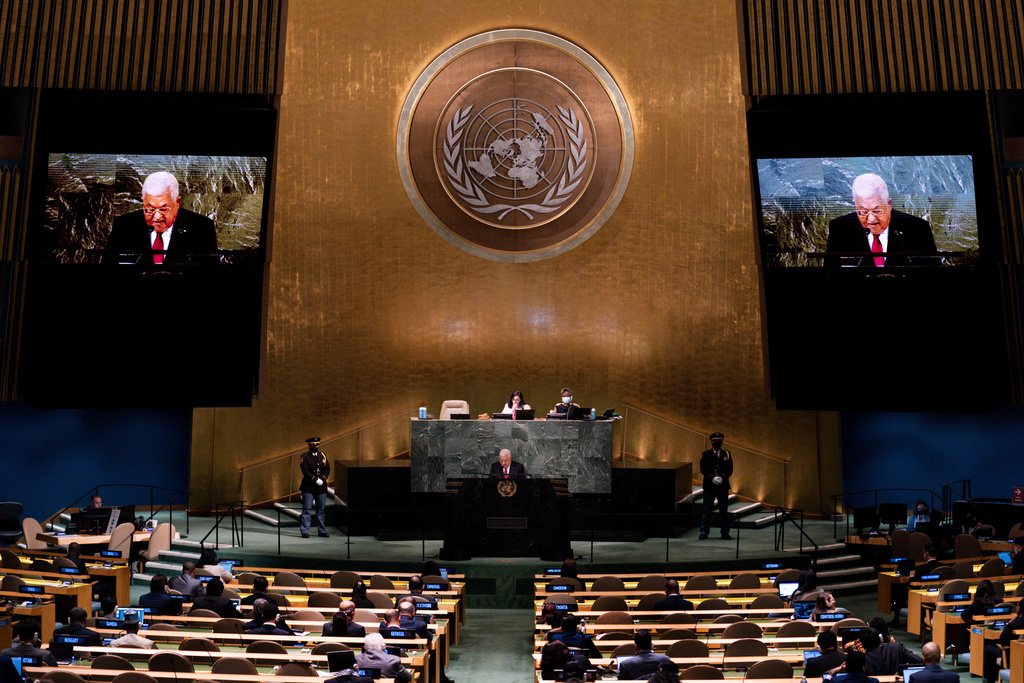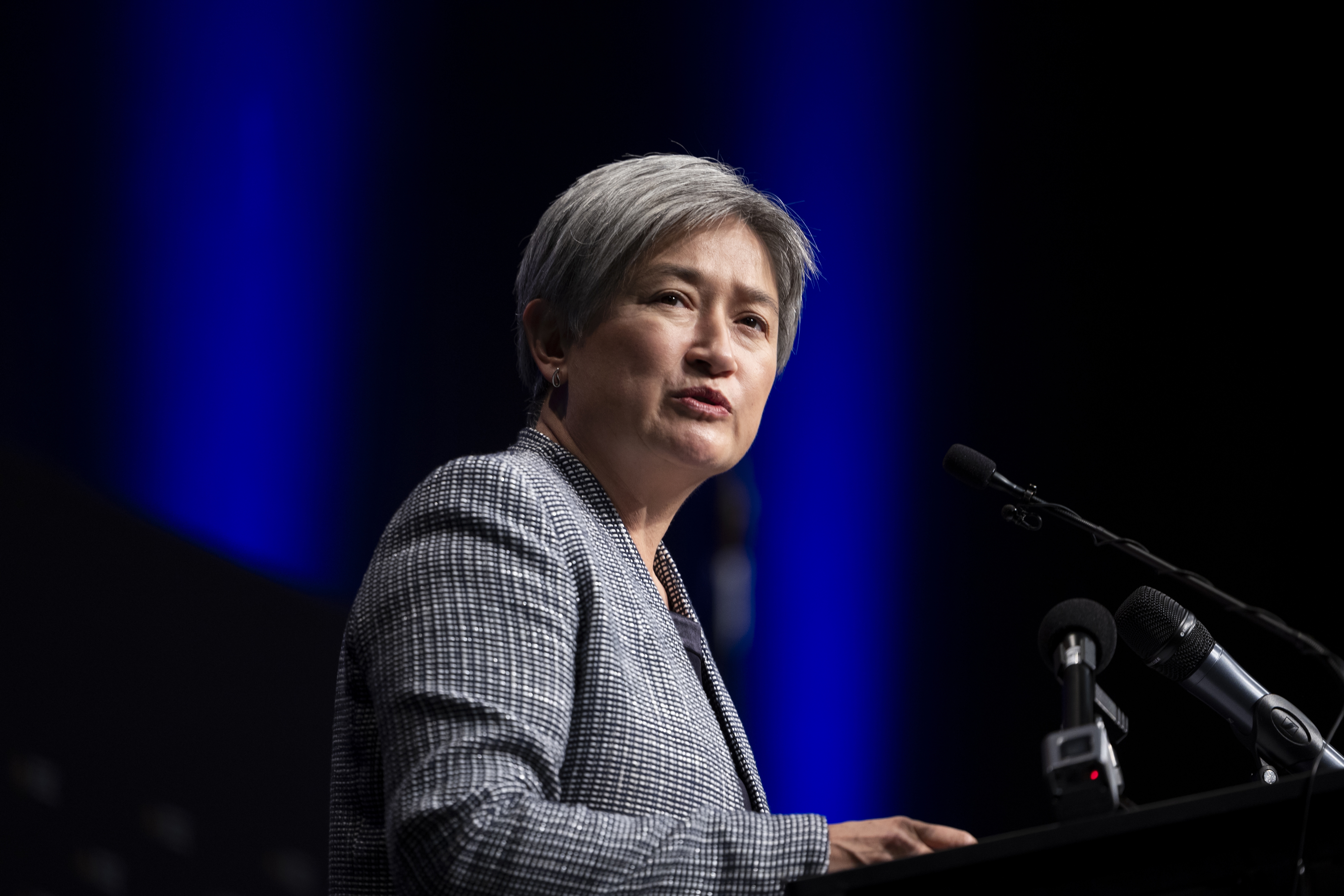Australia has voted to recognise Palestinians’ “permanent sovereignty” over their natural resources in a significant foreign policy shift that breaks with the US and Israel.
Votes in favour of two United Nations draft resolutions on Wednesday (Thursday AEDT) are the latest in a series of more pro-Palestinian votes Australia has taken at the global body, angering local pro-Israel groups but draw praise from Palestinian advocates.
The draft resolution in the UN’s Second Committee recognised the “permanent sovereignty of the Palestinian people in the Occupied Palestinian Territory, including East Jerusalem, and of the Arab population in the occupied Syrian Golan over their natural resources”.
The resolution passed with 159 votes in favour and seven against – including the US, Canada and Israel, with 11 abstentions.
The vote breaks a 20-year streak of Australia voting no or abstaining on the issue, according to the Australia/Israel and Jewish Affairs Council.
Canberra last abstained on the issue in November last year, a month after Hamas launched its October 7 attacks, killing 1200 people, mostly civilians, and dragged some 250 into Gaza as hostages and sparking Israel’s war in Gaza, which has claimed the lives of 43,000 Palestians, according to the local health authority, and spread into neighbouring countries.
A spokesperson for Foreign Minister Penny Wong said the vote reflected international concern for Israel’s actions, including its “ongoing settlement activity, land dispossession, demolitions and settler violence against Palestinians”.
“We have been clear that such acts undermine stability and prospects for a two-state solution,” they said.
“This resolution importantly recalls UN security council resolutions that reaffirm the importance of a two-state solution that has had bipartisan support.”
Before the vote, Israel’s representative to the committee decried the resolution as “rooted in biased political motives”.
“Tragically every resource meant to benefit the Palestinians has been co-opted for Hamas war machinery,” he said.
The Palestinian representative on the committee said the vote was a strong reaffirmation “of the inalienable rights of the Palestinian people, including the right to self determination and freedom”.
“It also sends a strong message that all the atrocities Israel is committing in the besieged Gaza Strip, as well as the measures and policies that is carrying out across the rest of occupied Palestine, including East Jerusalem, are illegal and must be halted, and that the occupying power must be held accountable without delay,” she said, after the vote.
US political adviser to the UN Nicholas Koval said his country was disappointed the committee criticised the resolution as “unbalanced” and “unfairly critical of Israel, demonstrating a clear and persistent institutional bias”.
“One-sided resolutions will not help advance peace. Not when they ignore the facts on the ground,” he said.
“One-sided resolutions are purely rhetorical documents that seek to divide us at a time when we should be coming together. And one we must not cling to longstanding lines of division.”
Locally, the Australia Palestine Advocacy Network welcomed what it called Australia’s “long-overdue recognition of Palestinians’ inalienable rights”.
“Australia’s support marks an acknowledgment of the catastrophic impact of Israel’s relentless appropriation and destruction of Palestinian resources and sends a clear signal that the world is demanding accountability for these injustices,” APAN president Nasser Mashni said, in a statement.
“This vote should be a turning point for the Australian government – it must recognise and act upon its legal obligation to use all economic, political and diplomatic tools at its disposal to help end Israel’s genocide, illegal occupation, and apartheid in Palestine.”
But the Australia/Israel and Jewish Affairs Council said it was deeply concerned by votes that made “no sense, either in terms of the objectives of the resolutions, or Australia’s historical voting record”.
“All Australian governments have voted no on the oil slick resolution since it was introduced in 2006, including, until now, the Albanese Government,” executive director Dr Colin Rubenstein said.
“This is because the resolution does nothing to build momentum toward peace, is completely decontextualised and ignores the substantial environmental destruction caused by Hezbollah in Israel during the 2006 war.”
Australia also voted in favour of a resolution calling for Israel to assume responsibility for an oil slick caused by the Israeli Air Force’s destruction of oil storage tanks near a Lebanese power plant, which Australia voted against in 2023.
Votes on both resolutions will now go to the UN’s General Assembly.
Australia earlier this year voted with the vast majority of the United Nations General Assembly on a resolution to grant “rights and privileges” to Palestine and a separate vote calling for an immediate ceasefire.



